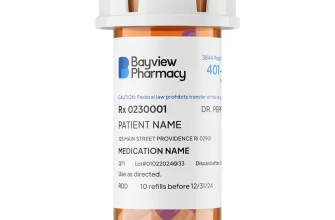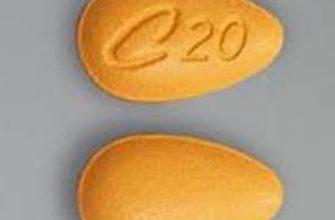No, Cialis isn’t physically addictive like heroin. However, psychological dependence, characterized by a strong urge to continue using the drug despite potential harm, is a possibility. This depends heavily on individual factors and usage patterns. We’ll explore these crucial aspects below.
The risk of developing psychological dependence increases with prolonged use, particularly if Cialis is taken without a doctor’s prescription or for reasons outside its intended purpose. Self-medicating for erectile dysfunction or performance anxiety can easily lead to a reliance on the drug for confidence and self-esteem rather than solely for its intended physiological effects.
Regular users should actively monitor their reliance on Cialis. Open communication with your doctor is key to responsible use. They can help you assess your usage patterns and identify any potential underlying mental health concerns contributing to your reliance on the medication. Consider exploring alternative coping mechanisms for anxiety or performance-related issues to reduce your dependence on Cialis.
Remember, responsible use entails adhering to prescribed dosages and durations. Misuse significantly raises the risk of adverse effects, including high blood pressure and heart problems. Therefore, prioritize a healthy lifestyle that promotes physical and mental wellbeing to mitigate the chances of developing a dependence on Cialis.
- Cialis and Dependence: A Detailed Overview
- Understanding Cialis’s Mechanism and Potential for Dependence
- Risk Factors and Signs of Potential Dependence on Cialis
- Identifying Potential Dependence
- Seeking Professional Help
- Managing Cialis Use and Addressing Potential Dependence Concerns
- Understanding Your Prescription
- Lifestyle Adjustments
- Addressing Psychological Factors
- Recognizing Potential Problems
- Gradual Reduction (Under Medical Supervision)
- Seeking Support
Cialis and Dependence: A Detailed Overview
Cialis, a medication used to treat erectile dysfunction and benign prostatic hyperplasia (BPH), does not cause physical dependence. Withdrawal symptoms aren’t typically observed upon cessation. However, psychological dependence is possible.
Psychological dependence involves a reliance on Cialis for emotional well-being or a feeling of improved self-esteem, rather than a physiological need. This is more common in individuals who already struggle with anxiety or low self-esteem related to sexual performance.
Developing a healthy relationship with Cialis involves responsible usage and addressing underlying emotional issues. Open communication with your doctor is key.
Here’s a helpful table summarizing key points about Cialis and dependence:
| Feature | Details |
|---|---|
| Physical Dependence | Highly unlikely. No withdrawal symptoms expected. |
| Psychological Dependence | Possible, especially for individuals with pre-existing anxiety or low self-esteem related to sexual function. |
| Treatment Approach | Focus on responsible use and addressing underlying psychological factors. Consult your doctor for guidance. |
| Alternative Solutions | Lifestyle changes (diet, exercise), therapy, and alternative medications may be considered in conjunction with or instead of Cialis, depending on the individual and underlying conditions. |
Regular check-ups with your healthcare provider are recommended to monitor your health and discuss any concerns regarding Cialis use. They can help you determine the best course of action for your individual needs.
Understanding Cialis’s Mechanism and Potential for Dependence
Cialis, or tadalafil, works by increasing blood flow to the penis, facilitating erections. This happens through the inhibition of phosphodiesterase-5 (PDE5), an enzyme that breaks down cyclic GMP, a molecule crucial for achieving and maintaining an erection.
Unlike some other medications, Cialis boasts a longer half-life, meaning its effects last considerably longer. This longer duration contributes to its popularity but also raises questions about potential dependence. Let’s address this directly.
- Physical Dependence: Cialis does not cause physical dependence in the same way as opioids. Withdrawal symptoms aren’t typically reported upon cessation.
- Psychological Dependence: This is a more nuanced issue. Some men might develop a psychological reliance on Cialis, believing they cannot achieve satisfactory sexual function without it. This is particularly true for individuals with pre-existing performance anxiety or relationship issues.
Factors increasing the risk of psychological dependence include:
- Underlying anxiety or depression.
- Pre-existing sexual performance concerns.
- Long-term Cialis use without addressing underlying issues.
Recommendations to mitigate the risk:
- Honest self-assessment: Identify and address underlying psychological factors contributing to sexual dysfunction. Therapy or counseling can be highly beneficial.
- Consult a doctor: Discuss your usage patterns and any concerns about dependence with your physician. They can guide you towards appropriate management strategies.
- Gradual reduction (if needed): Don’t abruptly stop taking Cialis if you want to reduce or cease usage. Your doctor can help establish a safe tapering schedule.
- Lifestyle changes: Explore lifestyle modifications such as exercise, diet, and stress management that positively impact sexual health.
Open communication with your healthcare provider is crucial for safe and responsible Cialis use. They can provide tailored guidance based on your individual circumstances and health profile.
Risk Factors and Signs of Potential Dependence on Cialis
Cialis dependence, while uncommon, is possible. Individuals with a history of substance abuse disorders are at a higher risk. This includes dependence on alcohol, opioids, or other medications. Pre-existing mental health conditions, such as anxiety or depression, can also increase the likelihood of developing problematic Cialis use.
Identifying Potential Dependence
Increased Dosage: Noticeably increasing the prescribed dosage without medical consultation signals a potential problem. This suggests the user seeks a stronger effect. Frequency of Use: Using Cialis more frequently than prescribed, perhaps daily, despite doctor’s instructions, is another red flag. Obsessive Thoughts: Constantly thinking about obtaining and using Cialis, even when not medically necessary, indicates a possible dependence pattern. Withdrawal Symptoms: Experiencing symptoms like irritability, anxiety, or depression when unable to take Cialis raises concerns. This suggests physiological dependence is developing. Negative Consequences: Continuing Cialis use despite experiencing negative consequences, such as relationship problems or financial strain, points to a potential problem.
Seeking Professional Help
If you recognize these signs in yourself or someone you know, seek professional medical assistance immediately. A healthcare professional can provide a proper diagnosis and develop a tailored treatment plan, which may include therapy and gradual dosage reduction, if necessary. Open communication with your doctor is key to managing any potential issues.
Managing Cialis Use and Addressing Potential Dependence Concerns
Always follow your doctor’s instructions precisely. This includes taking the prescribed dosage, frequency, and duration of treatment. Never adjust your dosage without consulting your physician.
Understanding Your Prescription
Clearly understand why your doctor prescribed Cialis. Discuss your concerns about potential dependence openly and honestly. Ask about alternative treatments if appropriate.
Regularly schedule follow-up appointments with your doctor. This allows for monitoring of your condition and assessment of the medication’s effectiveness. Report any side effects immediately, no matter how minor they seem.
Lifestyle Adjustments
Maintain a healthy lifestyle. A balanced diet, regular exercise, and stress management techniques can significantly improve overall health and may reduce the need for medication. Sufficient sleep is also paramount.
Addressing Psychological Factors
For psychological issues contributing to erectile dysfunction, consider therapy. A therapist can provide tools to manage underlying anxieties or depression that may influence medication reliance.
Recognizing Potential Problems
Watch for signs of psychological dependence, such as increased dosage requests or compulsive medication seeking. Address these issues with your doctor promptly and seek professional mental health assistance if necessary. Open communication is key to successful management.
Gradual Reduction (Under Medical Supervision)
Never stop taking Cialis abruptly. If you and your doctor decide to reduce or discontinue the medication, a gradual tapering-off process under strict medical guidance is necessary to minimize any potential withdrawal symptoms or complications. This process needs careful monitoring.
Seeking Support
Connect with support groups or online communities dedicated to men’s health concerns. Sharing experiences can be beneficial and provide valuable insights into managing medication use responsibly. Remember, you are not alone.










